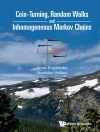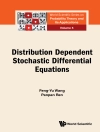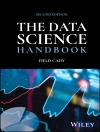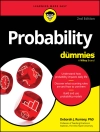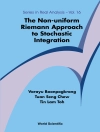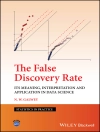The field of applied probability has changed profoundly in the past
twenty years. The development of computational methods has greatly
contributed to a better understanding of the theory. A First
Course in Stochastic Models provides a self-contained
introduction to the theory and applications of stochastic models.
Emphasis is placed on establishing the theoretical foundations of
the subject, thereby providing a framework in which the
applications can be understood. Without this solid basis in theory
no applications can be solved.
* Provides an introduction to the use of stochastic models
through an integrated presentation of theory, algorithms and
applications.
* Incorporates recent developments in computational
probability.
* Includes a wide range of examples that illustrate the models
and make the methods of solution clear.
* Features an abundance of motivating exercises that help the
student learn how to apply the theory.
* Accessible to anyone with a basic knowledge of
probability.
A First Course in Stochastic Models is suitable for
senior undergraduate and graduate students from computer science,
engineering, statistics, operations resear ch, and any other
discipline where stochastic modelling takes place. It stands out
amongst other textbooks on the subject because of its integrated
presentation of theory, algorithms and applications.
Table of Content
Preface.
The Poisson Process and Related Processes.
Renewal-Reward Processes.
Discrete-Time Markov Chains.
Continuous-Time Markov Chains.
Markov Chains and Queues.
Discrete-Time Markov Decision Processes.
Semi-Markov Decision Processes.
Advanced Renewal Theory.
Algorithmic Analysis of Queueing Models.
Appendices.
Appendix A: Useful Tools in Applied Probability.
Appendix B: Useful Probability Distributions.
Appendix C: Generating Functions.
Appendix D: The Discrete Fast Fourier Transform.
Appendix E: Laplace Transform Theory.
Appendix F: Numerical Laplace Inversion.
Appendix G: The Root-Finding Problem.
References.
Index.
About the author
Henk C. Tijms is a Dutch mathematician and Emeritus Professor of Operations Research at the VU University Amsterdam. He studied mathematics in Amsterdam where he graduated from the University of Amsterdam in 1972 under supervision of Gijsbert de Leve.




